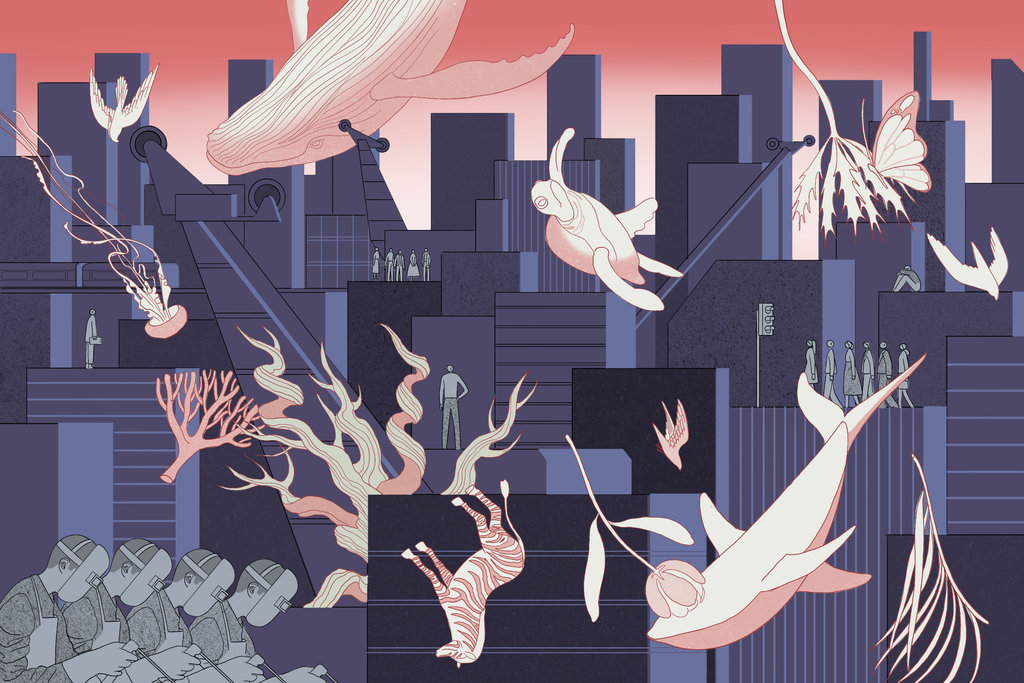In a previous post I made the mistake that I suspect many bloggers make which is not being clear about what I was discussing. Rereading the post I realised that I was using a key word - biodiversity - in a way that was clouding the main point I was making.
In the post I discussed my worry that in their charge for a zero-carbon world governments would trample over biodiversity. My concern was based on the way that many governments, as well as businesses and other institutions, were including biodiversity at a superficial level in their policies. The point that I was making was that we need both: a zero carbon world ( or better still a negative carbon world ) and an increase in biodiversity. However, I had fallen into the same trap that they are making and using the biodiversity as a brand name rather than a call to action.
I am not the only one struggling with the meaning of biodiversity. A search on the web came back with over 93 million hits where it had some form of definition. The one that gets close to my thinking comes from the Convention on Biological Diversity: “Biological diversity - or biodiversity - is the term given to the variety of life on Earth and the natural patterns it forms. The biodiversity we see today is the fruit of billions of years of evolution, shaped by natural processes and, increasingly, by the influence of humans. It forms the web of life of which we are an integral part and upon which we so fully depend.” Many other words that are used in the debate over biodiversity such as: food web, ecosystem nature and wildlife all have overlapping meanings which add to a confusing picture.
What the previous post was trying to point out is that there is a complex relationship between each species and if we are not careful when we change the way that we live to combat the climate crisis then we could have a devastating impact on some of species we are trying to save! The example of the hedgehog highlights the sensitivity we have on a species. The reasons underlying hedgehogs’ decline are varied and complex. In the UK the hedgehog’s main predators are badgers. The UK Government’s badger culling programme is an attempt to reduce TB in cattle. But it has driven those badgers that have survived to move into more land and as they spread out they are probably eating more hedgehogs. Coming closer to our gardens hedgehogs eat worms, beetles, slugs, caterpillars, earwigs and millipedes. But the use of some types of slug pellets not only poisons them but reduces their food supply. This is a clear example where we have failed to understand the complexity of our relationship with another species resulting in a destructive impact.
Organisations at international, national and local levels must use the word biodiversity clearly so that they can be held accountable for their actions. Using words that hang in the air allows them too much scope to argue away their failed actions. In the case of the UK Government’s recently updated Social Value Legislation it states that all government contracts above a certain value must demonstrate that they have improved social value. In amongst the documents there is a framework that includes Climate Change with only one mention of biodiversity. The only measurable action that could have an impact on biodiversity is an increase in green spaces. There is no link to how increasing green spaces, although a good thing, will improve any particular species. If green spaces are increased but the hedgehog continues to decline can that be considered a success?
Being clear on the meaning of words used by organisations is key to holding them accountable for their actions. Although there are many good intentions in the various policies and statements produced by governments, businesses and other organisations, they must have clear actions whose results can be measured. In the case of biodiversity the complex relationship between all species must be made clear so that their actions only improve the situation. The environment that all species, including us, rely on is chocking from greenhouse gases but let us make sure that as we clear up the mess we don’t end up the last species on the planet!
